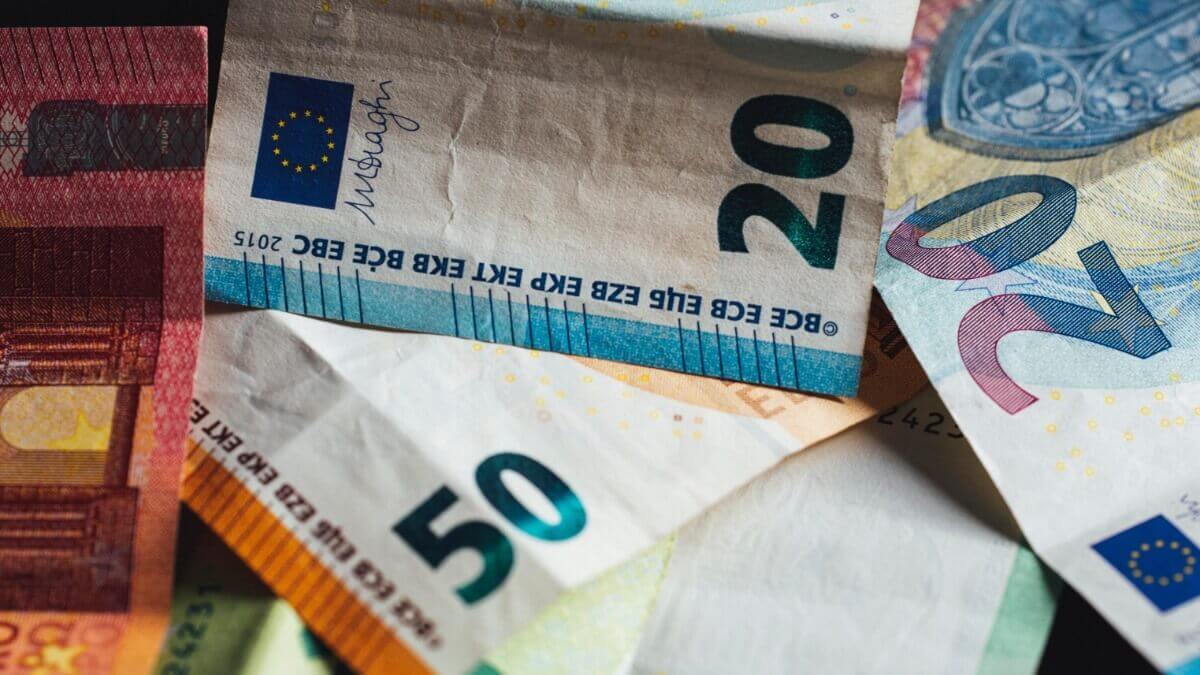American banks in Panama: branches and more
Read on to find out what US banks have branches in Panama and tips on banking in the country.

From lively pubs to beautiful scenery, lots of culture and busy friendly cities, life in Ireland truly has lots of advantages.
As a bonus, opening a bank account in Ireland is relatively straightforward, which is one less thing to worry about while you plan your move. Read on to find out how to open a bank account in Ireland.
We’ll also introduce Wise as an alternative to using a bank, which lets you open a EUR account even before even leaving the US.
There are plenty of banks to choose from including local, regional and global brands you’re probably familiar with already. Picking the right one for you will depend on your personal requirements and preferences.
We’ll cover some of the biggest banks in the country a little later to help you choose. When you’re looking at accounts remember to read the terms and conditions carefully, looking at account maintenance and transaction fees, and when they’re charged, as well as all the available features.
You can open a bank account in Ireland if you’re living there, and some banks will also offer non-resident accounts if you’re looking for a way to manage your money in euros from elsewhere.
It’s generally very easy to open a bank account in Ireland if you’re within the EU or EEA — if you’re opening an account in Ireland as an American resident you’ll probably have to take a couple of extra verification steps to prove your identity and residence details. Here’s what you need to know.
According to the Citizens Information Ireland service¹, you’ll need two documents to open an Irish bank account: a photo ID and a proof of address.
Your passport, driving license or national identity card (if you’re an EU citizen) are all usually valid forms of photo ID. You may find a bank will also accept an Irish Residence Permit or a Temporary Residence Permit if you have one.
For a standard Irish bank account, you’ll need to be able to prove your Irish residential address.
| Proof of address documents can include: |
|---|
|
If you don’t have any of these documents you may be able to open a non-resident bank account instead. Many banks will accept a utility bill, bank statement or government correspondence with your home country address.
However, some banks — such as Bank of Ireland² — will require non-residents to provide two proof of ID documents instead of one.
If you’re interested in opening a non-resident account with Bank of Ireland, it also helps to know that documents provided must be in English, and certified by either a lawyer (in Ireland, known as a solicitor) or a police officer.
It’s not normally possible to open a bank account in Ireland without a valid proof of address. That’s because of local and global legislation to prevent money laundering, and part of the way banks keep customers and their money safe.
The key exception is if someone is applying for a bank account as a refugee or asylum seeker. Banks such as the Bank of Ireland³ have dedicated services to help individuals in this situation. In this case, banks may accept other documents, but this will take a longer time to arrange.
If you’re a long term resident of Ireland with certified identity and address paperwork, or if you hold a passport from the EU or EEA, you may be able to open your Irish bank account digitally.
However, to open a bank account in Ireland as a foreigner you’ll often need to call into a branch to complete your application and show your paperwork.
The exact process will vary from bank to bank, but the basic steps are quite similar:
Step 1. Choose the right bank and account product for your needs
Step 2. Visit the bank’s website to make an appointment to visit a branch and open your account
Step 3. Download the application forms and fill them out
Step 4. Call into the branch to complete your application and show your proof of identity and address
Step 5. Pay in cash or make a transfer to cover the account’s minimum opening deposit
Step 6. You’ll receive your bank card and checkbook in the post at your registered address within a few days
It’s possible to open a bank account online in Ireland — but it’s much easier to do if you’re a resident of Ireland and hold a European passport.
Different banks have different policies on this — AIB⁴ for example, offers online and digital account opening mainly for Irish residents who have a valid ID, including a non-EEA passport with an Irish Visa stamp, or a non-EEA passport with an Irish Residence permit card.
If you’re new to the country you may find it harder to open a regular account online. Non-resident accounts can usually be opened online — but for these you’ll often need to have your documents certified, and you’ll usually need to provide additional information and paperwork to get started.
If you’re still in the US and want to get a euro account for day to day use before you travel to Ireland, you might want to consider an international account from an alternative service, like Wise.
Wise accounts can be opened using a US proof of ID and address, with access to EUR bank details to receive payments, and options to send and spend in EUR, too. More on that in a moment.
Opening an Irish bank account online follows a similar pattern to getting your account set up in a branch. Here’s what you’ll usually need to do:
Step 1. Find the right bank and account product for your needs
Step 2. Check you’re eligible for online account opening
Step 3. Gather the required documents — if you’re applying as a non-resident these may need to be certified or translated
Step 4. Head to the bank’s website or mobile app to complete your application
Step 5. Upload images of your required documents
Step 6. You’ll get a notification once your account is open, so you can deposit funds
Step 7. Your bank card and checkbook will arrive in the post within a few days
Opening a bank account (whether in person or online) can be a very time consuming process — especially in a new country.
Make it easier by setting up a Wise Account before you leave the US.
With Wise you can hold over 50 currencies, send money to Ireland, and get a Wise Multi-Currency Card to make spending euros easier and cheaper. Just top up your Wise account in dollars — or the supported currency of your choice — and switch to EUR with the mid-market rate and low fees from 0.41%⁵.
Or let the card convert for you at the point of payment, with low fees every time. You can also get account details to receive payments in 9 different currencies including EUR and USD.
There are no ongoing maintenance fees, so you can keep and manage your money wherever you are, right from your phone or laptop.
💡 If you're a business owner or freelancer, then you can also consider opening a business account to keep your finances separate. With Wise Business, you can easily open a business account online, and manage your finances at home and internationally.
Discover the difference between
Wise Business vs Personal
There are dozens of retail banks in Ireland, all offering broadly similar products. However, three of the biggest banks in the country are Bank of Ireland®, Allied Irish Banks® and Permanent TSB®.
Ulster Bank® also used to have a presence in the Republic of Ireland, but services are now limited for new customers. Let’s have a more detailed look at our 3 big Irish banks, to see what they each have to offer.
Bank of Ireland⁶ is the oldest and largest bank in Ireland.
You can apply for a personal account online if you’ve got all the right documents lined up — and the large branch and ATM network available can make this one of the best current account options for foreigners in Ireland.
Depending on the specific account you pick, you can get a Visa® debit contactless card, online banking and an overdraft facility.
You can also apply for a student account and business banking facilities. Student accounts don’t have a maintenance fee, and many transaction types have the charges waived, too.
Bank of Ireland’s business banking facilities include a contactless Visa debit card, overdraft facilities and the support of a business advisor, which is really helpful if you’re just starting your business.
AIB’s⁸ personal current account has a 4.50 EUR quarterly maintenance fee. You’ll also get a Visa debit card with which you can get cashback at selected retailers.
If you’re a full-time university student, you can apply for a Student Plus Account. This comes with a number of perks, including no maintenance fees and some fee free transactions as part of the package.
AIB’s business banking facilities are particularly good if you’re just starting your business. Besides a dedicated business current account, you can get a whole business startup package. This includes a current account, overdraft facilities, a debit card and some free transactions.
The third largest bank in Ireland, Permanent TSB¹⁰ has a digital current account called the Explore Account, which has no fees for many day to day transactions.
Instead, you pay a monthly 6 EUR fee, and can earn 0.10 EUR cashback as you pay by card, and discounts on some bill payments with partner organizations.
Accounts can be opened online if you’ve got the required documents, and you’re already an Irish resident.
For students, the Permanent TSB student account is available for up to 5 years for eligible customers, and comes with no maintenance fee and few day to day transaction fees to worry about.
If you’re an entrepreneur, sole trader or business owner, Permanent TSB business bank accounts can help with perks including visa debit cards, business overdraft facilities, online and mobile banking, cash deposit options, and a dedicated team to help support customers on an individual basis.
Most Irish banks charge a number of fees including a monthly or quarterly maintenance fee.
In addition, Visa debit cards are subject to government stamp duty, and your bank may also charge for ATM withdrawals and deposits, for debit card transactions (including contactless transactions) and even for over the counter transactions with one of your bank’s tellers.
Finally, don’t forget about international money transfer fees. When you send money abroad, you can be hit with fees both from your Irish bank and from your home country’s bank.
| Maintenance fee | International transfer Fee | Foreign transaction fees | |
|---|---|---|---|
| Bank of Ireland | 6 EUR/month for current account⁶ | 0.50 EUR for payments to the UK or EEA 0.2% (maximum 50 EUR) + foreign exchange margin for other standard online payments⁷ | 2% for card payments — maximum of 11.43 EUR 3.5% for cash withdrawals — maximum of 11.43 EUR |
| AIB | 4.50 EUR/quarter for current account⁸ | No fee for euro payments, 15 EUR for other standard online payments⁹ | 1.75% — maximum of 11 EUR 2.5% for cash withdrawals |
| Permanent TSB | 6 EUR/quarter for digital current account¹⁰ | 0.5 EUR for EUR and SEK payments in the EU 31.50 EUR for other standard payments¹¹ | 1.75% for card payments — maximum of 11.43 EUR 3.5% for cash withdrawals — maximum of 11.43 EUR |
Northern Ireland is part of the UK, which means that UK banking rules, not Irish rules, apply. This makes opening a bank account in Northern Ireland a bit more difficult than opening a bank account in Ireland.
Northern Ireland’s largest banks include the Bank of Ireland¹², AIB (called First Trust Bank¹³ in Northern Ireland) and Ulster Bank¹⁴.
The main difference is that, as in the rest of the UK, a basic bank account is free to open and use. Your Visa debit card will also be free, as Irish government stamp duty on bank cards doesn’t apply in Northern Ireland.
You also need to keep in mind that, unlike the rest of Ireland, the currency in Northern Ireland is not the Euro, but the British Pound.
The exact fees you pay can vary depending on the bank and specific account you pick, but in general you won’t be charged a fee when you withdraw euros in the rest of Ireland, provided you use one of your bank’s ATM machines.
However, you will be charged a non-Sterling transaction fee if you use an ATM outside of Ireland or the UK.
Sources checked on 05.15.2023
*Please see terms of use and product availability for your region or visit Wise fees and pricing for the most up to date pricing and fee information.
This publication is provided for general information purposes and does not constitute legal, tax or other professional advice from Wise Payments Limited or its subsidiaries and its affiliates, and it is not intended as a substitute for obtaining advice from a financial advisor or any other professional.
We make no representations, warranties or guarantees, whether expressed or implied, that the content in the publication is accurate, complete or up to date.

Read on to find out what US banks have branches in Panama and tips on banking in the country.

Read on to find out what US banks have branches in Portugal and tips on banking in the country.

Read on to find out what US banks have branches in Italy and tips on banking in the country.

Read on to find out what US banks have branches in Germany and tips on banking in the country.

Find out what Remitly's global membership program, Remitly One, offers, and the fees and requirements to be aware of.

Read on to find out what US banks have branches in India and tips on banking in the country.